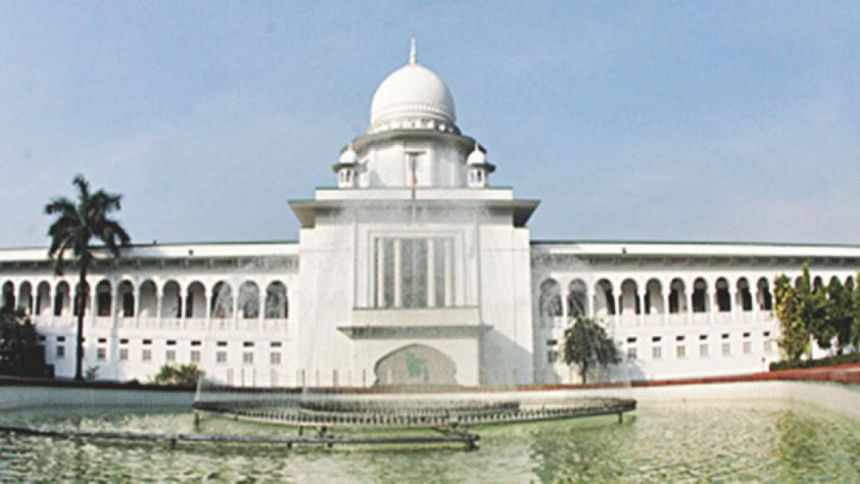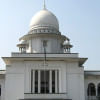Freedom fighters' retirement age 60: SC

The Supreme Court in the full text of its verdict in a case over the retirement age of freedom fighters has ruled that the retirement age of freedom fighters, who have been serving in public service, is 60 years as per the relevant law.
The Appellate Division of the SC released the full text of the verdict last week in which it has also scrapped a High Court judgement that had directed the government to enhance the retiring age of some freedom fighters, who filed a writ petition to this effect, till completion of their service till 61st year of their age.
A seven-member SC bench led by Chief Justice Syed Mahmud Hossain announced a short verdict on November 18 last year on an appeal filed by the government challenging the HC verdict delivered on November 28, 2017.
In the full text of verdict, the apex court said, “Earlier, the retirement age of the public servants of the republic was till completion of their service up to 57th year of their age. Thereafter, by amending the law, the retirement age of freedom fighters, who have been serving in the service of the republic, was provided up to attaining 59th year of their age.
When the age limit of all the public servants was enhanced up to 59 years upon amending the relevant law, the retiring of the freedom fighters, who have been serving in the Republic, was provided up to attaining the age of 60th year,” it said.
The Appellate Division observed that the legislature did not provide the age limit of the freedom fighters to serve in the service of the republic up to 61 years.
“Here, in this case, it appears from the operative portion of the impugned judgment that the High Court Division directed the writ respondents to enhance the retiring age of the writ petitioners till completion of their service till 61st year of their age. Such enhancement can only be done by the legislature by amending the relevant law,” a seven-member SC bench led by Chief Justice Syed Mahmud Hossain said in the full text of the verdict.
It said the HC, indirectly, directed the legislature to amend the relevant law although it cannot direct the legislature to enact or amend any law.
“The High Court Division cannot assume the authority, by which, it can increase the retiring age of public servants. Similarly, in exercising the jurisdiction under article 102 of the constitution the High Court Division cannot direct the legislature to enact or amend particular law,” the SC said.
“The legislature is supreme in its own sphere under the constitution and it is solely for the Legislature to consider as to when and in respect of what subject matter, the laws are to be enacted. The High Court Division exceeded its jurisdiction assuming the power of legislature, thereby, extending the retiring age limit of the freedom fighters, who have been serving in the service of the republic. The High Court Division cannot usurp the functions assigned to the legislature or executive to exercise their constitutional power in any manner,” the SC said in the full text of the verdict.

 For all latest news, follow The Daily Star's Google News channel.
For all latest news, follow The Daily Star's Google News channel. 







Comments